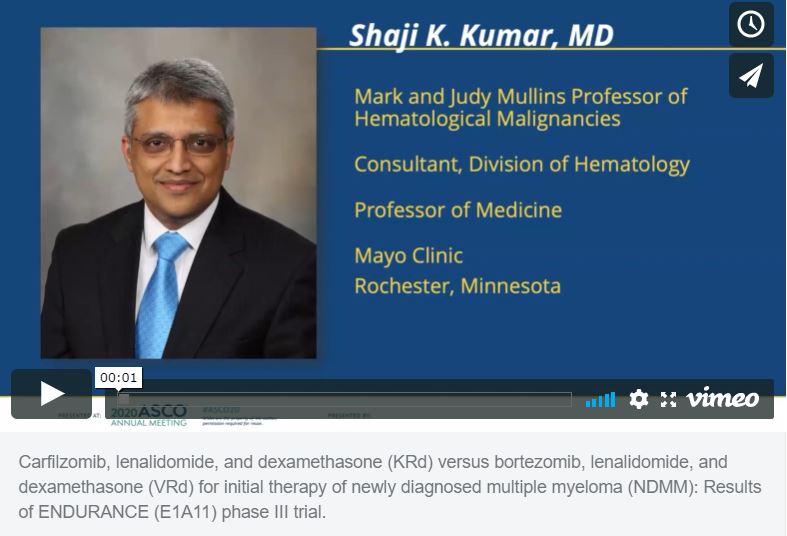Pyrotinib is a small-molecular, irreversible, pan-ErbB receptor kinase inhibitor targeting EGFR, HER2, and HER4 [1]. In previous phase 2 and phase 3 studies, pyrotinib in combination with capecitabine has shown clinically meaningful benefits and tolerability on patients with metastatic HER2-positive breast cancer after prior treatment with taxanes, anthracyclines, and/or trastuzumab. Pyrotinib plus capecitabine showed better overall response rates (ORR) and PFS compared with lapatinib plus capecitabine, which was standard second line of care for these patients in China [2].
In the phase 3 PHOEBE trial, 267 patients with metastatic HER2-positive breast cancer who had prior treatment with trastuzumab and taxanes, and/or anthracyclines were randomised 1:1 to treatment with pyrotinib (400 mg once daily) plus capecitabine (1,000 mg/m2 twice daily on days 1-14 of each 21 day cycle) or lapatinib (1,250 mg once daily) plus capecitabine [3]. Primary endpoint of the study was PFS, secondary endpoints were overall survival (OS), ORR, duration of response (DoR), clinical benefit rate, and safety.
Median PFS was 12.5 months for the pyrotinib combination versus 6.8 months for the lapatinib combination (HR 0.39; 95% CI 0.27-0.56; P<0.0001). Among trastuzumab-resistant patients (n=69), prolonged PFS with the pyrotinib combination was also observed (12.5 months vs 6.9 months; HR 0.60; 95% CI 0.29 -1.21). ORR was 67.2% in the pyrotinib arm versus 51.5% in the lapatinib arm. Clinical benefit rates were 73.1% and 59.1%, respectively and median DoR was 11.1 months versus 7.0 months. OS rates after 12 months were 91.3% and 77.4%, respectively; however, these data are not yet mature.
Treatment-related adverse events grade ≥3 were observed in 77 (57.5%) of the patients in the pyrotinib arm and in 45 (34.1%) of the patients in the lapatinib arm. Serious treatment-related adverse events were observed in 8 (6%) and 2 (1.5%), respectively. The most common grade ≥3 treatment-related adverse event was diarrhoea: 30.6% versus 8.3%; the median cumulative duration of grade 3 diarrhoea was 7.0 days versus 6.0 days.
- Li X, et al. Eur J Pharm Sci. 2017; 110: 51-61.
- Ma F, et al. J Clin Oncol. 2019; 37: 2610-2619.
- Xu B, et al. ASCO Virtual Meeting, 29-31 May 2020, Abstract 1003.
Posted on
Previous Article
« BYLieve demonstrates efficacy of PIK3CA-directed treatment post CDK4/6-ihibition Next Article
Effect of veliparib with or without cisplatin in breast cancer: results of SWOG S1416 »
« BYLieve demonstrates efficacy of PIK3CA-directed treatment post CDK4/6-ihibition Next Article
Effect of veliparib with or without cisplatin in breast cancer: results of SWOG S1416 »
Table of Contents: ASCO 2020
Featured articles
COVID-19 & Telemedicine
COVID-19 and Cancer Consortium Registry: initial results
Oncology hospital-at-home model reduces hospitalizations, emergency department visits, and costs
Nurse-led telephone triage system reduces hospitalizations, helps patients manage symptoms at home
Melanoma
Adjuvant pembrolizumab: durable RFS for stage III melanoma
Adjuvant pembrolizumab: durable RFS for stage III melanoma
Pembrolizumab plus low-dose ipilimumab well tolerated after progression on PD1 antibody therapy
Toripalimab plus axitinib effective in metastatic mucosal melanoma
Breast & Ovarian Cancer
Advanced breast cancer: locoregional therapy does not improve OS
T-DM1 does not improve safety or efficacy in HER-2 positive early breast cancer; favorable iDFS reported
Maintenance olaparib improves OS in relapsed ovarian cancer with BRCA1/2 mutation
Combination pembrolizumab/chemo improves PFS in metastatic TNBC
Effect of veliparib with or without cisplatin in breast cancer: results of SWOG S1416
PHOEBE, a phase 3 trial comparing pyrotinib and lapatinib in HER2-positive metastatic breast cancer
BYLieve demonstrates efficacy of PIK3CA-directed treatment post CDK4/6-ihibition
Strategies emerge for chemotherapy de-escalation in HER2-positive breast cancer
Multiple Myeloma
Carfilzomib: no PFS benefit for multiple myeloma
Lung Cancer
ES-SCLC: tremelimumab + durvalumab + chemotherapy misses endpoint
Adjuvant osimertinib in NSCLC: practice changing ADAURA trial
ES-SCLC: pembrolizumab KEYNOTE-604 data
Second-line gemcitabine plus ramucirumab significantly improves overall survival
Tiragolumab and atezolizumab: ORR in NSCLC
MET-amplified advanced NSCLC responds well to MET inhibitor capmatinib
Genitourinary Cancer
Urothelial cancer: avelumab works as maintenance therapy
ARAMIS final OS and nmCRPC safety outcomes
Final survival results from phase 3 SPARTAN trial
Novel drug for kidney cancers/VHL patients
Primary analysis from IMvigor010, adjuvant atezolizumab in high risk muscle-invasive urothelial carcinoma
First randomised trial of Lu-PSMA in mCRPC progressing after docetaxel
Gastrointestinal Cancer
HER2-expressing metastatic colorectal cancer: trastuzumab deruxtecan
REGOMUNE: a phase 2 study combining regorafenib and avelumab
Cardiotoxicity: consider switching to S-1
Perioperative chemotherapy for resectable pancreatic ductal adenocarcinoma
Real-world data of sequential sorafenib followed by regorafenib in unresectable HCC
Paediatric Cancer
Sustained improvements in quality of life with larotrectinib
Promising first immunotherapy trial in placental trophoblastic tumours
Precision medicine for poor-prognosis paediatric patients
Related Articles

August 28, 2020
Carfilzomib: no PFS benefit for multiple myeloma
© 2024 Medicom Medical Publishers. All rights reserved. Terms and Conditions | Privacy Policy
HEAD OFFICE
Laarderhoogtweg 25
1101 EB Amsterdam
The Netherlands
T: +31 85 4012 560
E: publishers@medicom-publishers.com

